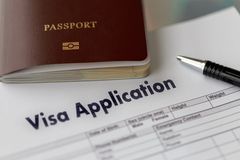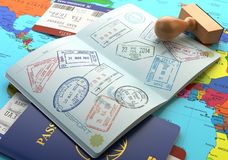The new visa waiver program for Europe’s Schengen Area will be arriving later than expected. The latest announcement from the European Union (EU) has stated that the ETIAS system will now be launched in 2025 instead of 2024. The European Travel Information and Authorisation System (ETIAS) has been in the works for several years. It
Visa policy for Belgium
This visa policy is a set of regulations and requirements for foreign citizens who want to travel to Belgium, shared with all the other countries in the Schengen passport-free zone.
If a passport holder belongs to a country in the Schengen Area, they are granted freedom of movement to Belgium by presenting a valid National ID card at border checkpoints.
Other visa-free travelers can enter Belgium using only a valid passport, as long as the stay does not exceed 90 days, for purposes such as tourism, transit, and business.
However, in 2025, the members of the Schengen Area will introduce a new visa policy whereby any foreign citizen who does not require a visa must pre-register for an ETIAS electronic authorization in advance.
This will be a mandatory requirement for short stays for the purposes listed above for all visa waiver travelers.
Belgian visa laws state that visa-exempt citizens who wish to stay for a longer period of time, or for other purposes, must apply for an embassy visa through a government diplomatic office of Belgium.
Applicants must specify the type of visa they want when filling out the visa application form, as a Belgian embassy offers numerous visa options. This may be either a tourist visa, business visa, work visa, student visa, or a visa for transit, among others.
An embassy visa for Belgium may be issued as a single or multiple entry document, depending on purpose of travel and period of stay. However, over 150 nationalities must apply for a consular visa no matter the length of the trip.
Below you can find a complete list of visa requirements to travel to Belgium from your country.



